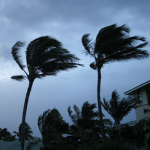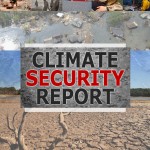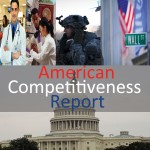
Extreme weather’s test of American competitiveness
As summer approaches, many families are beginning to plan where they will travel and in which hotels they will stay while on holiday. For some 900 people in the New York City area displaced by Hurricane Sandy, hotels have been their only home for more than half a year. That aid program looks to continue, according to The New York Times, by the order of a judge.
That is just one way to count the toll that extreme weather events are taking on the U.S.
According to a new American Security Project report, “Protecting the Homeland: The Rising Costs of Inaction on Climate Change,” the costs of hurricane damage are  rising quickly. The federal government spent $288.9 billion on hurricane relief from 2000 to 2009, more than triple the amount spent during the 1990s, according to the ASP report. Overall federal spending on responding to large disasters totaled $392 billion during the same period. As a reference, that amount is on par with the last three years of war spending on operations in Iraq and Afghanistan.
rising quickly. The federal government spent $288.9 billion on hurricane relief from 2000 to 2009, more than triple the amount spent during the 1990s, according to the ASP report. Overall federal spending on responding to large disasters totaled $392 billion during the same period. As a reference, that amount is on par with the last three years of war spending on operations in Iraq and Afghanistan.
Another way of counting the cost is to look at how continuing this ad-hoc approach to disaster preparedness hurts American competitiveness. Major infrastructure already faces serious underinvestment and degradation; weather-driven damage compounds the problem. Businesses need to have confidence that they can get goods and people quickly and safely into, out of and around the country. Disaster politics are nasty, too, given the heart-wrenching loss of life, livelihood and property and financial stakes running into the billions. See the ASP report “American Competitiveness: A Matter of National Security.”
A good start would be to commit to shoring up preparedness through a national resiliency initiative. Upgrading infrastructure such as ports, bridges, bulkheads and levees is a needed step in storm-prone coastal areas. Establishing a U.S. infrastructure bank would help tap private-public funding sources. As well, taking climate change seriously as a national security issue is a crucial first step toward building a consensus for action.
These steps represent significant and meaningful measures to literally make the country stronger. Such surety cannot be bought on the cheap, or without political commitment to ideas bigger than any one party. Yet such spending and focus represents a sound investment in American prosperity and national security.
Extreme weather will continue to vex the country for the foreseeable future but it need not exact so high a toll. After all, hurricane season begins next month.
See ASP’s Reports







